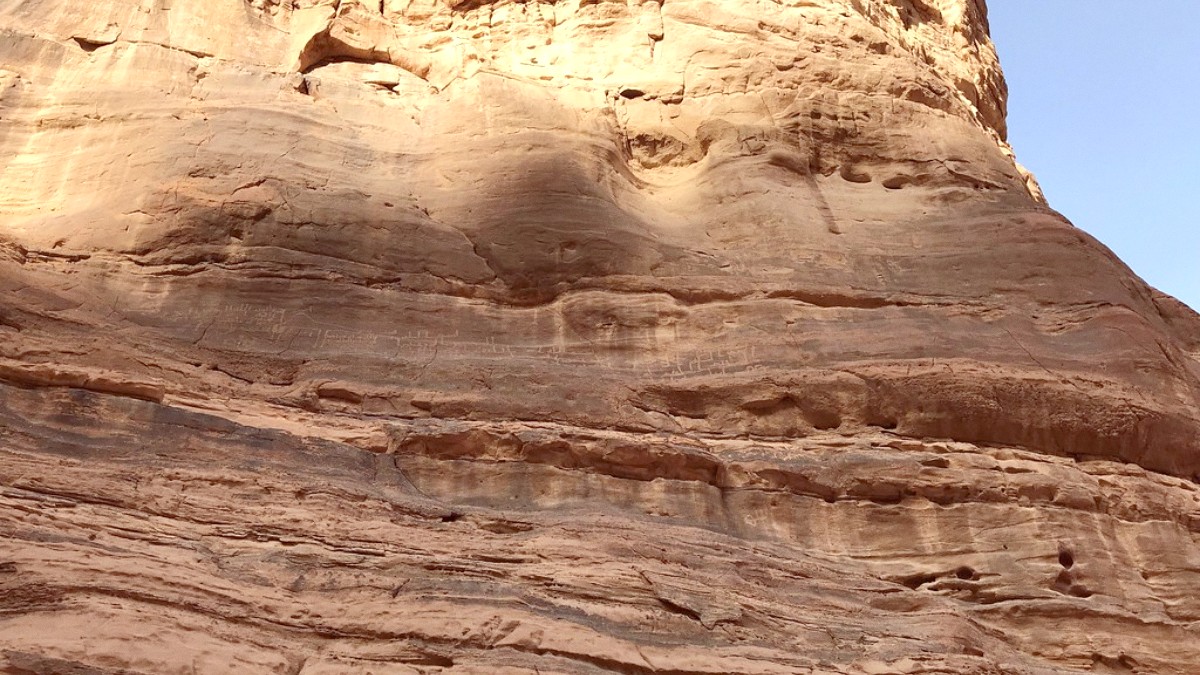
Petra And The South, Jordan
The sheer vastness and silence of the desert yield an unique sense of peace and perspective, fostering introspection and unparalleled tranquility.
Direct experience of a pristine desert ecosystem, dramatic landscapes, and incredibly clear night skies forms a powerful connection to the natural world.
Direct engagement with the hospitable Bedouin people facilitates learning about their ancient traditions, resilience, and deep connection to the land.
Dramatic landscapes and colors at sunrise/sunset. Outstanding photography opportunities.
The unique silence of the desert, crisp air, and traditional Bedouin tea make for distinct sensory impressions.
A profound sense of accomplishment and wonder emerges after experiencing the desert's vastness.
Your actions as a traveler directly shape Wadi Rum. Commit to these responsible practices.
Always seek explicit consent before photographing individuals, especially Bedouin women and children. Maintain modest dress.
Show genuine interest in Bedouin culture and traditions. Accept offers of tea graciously.
Be aware of and respect local customs and etiquette (e.g., taboos, public behavior, the use of your right hand).
Use a Reusable water bottle and avoid single-use plastics where possible to lower waste.
Be mindful of electricity usage in camps, as power sources might be limited.
Do not take rocks, plants, or other natural objects from the protected area as souvenirs.
Support artisans who engage in fair trade practices for their crafts.
Choose camps and operators committed to environmental protection and community development.
Share your responsible travel experiences to inspire others.
By following these guidelines, you preserve the beauty and culture of Wadi Rum for future generations. Your responsible actions create a lasting positive contribution.
Jordan is a wealth of diverse experiences.
Petra (essential), Jerash (well-preserved Roman city), Umm Qais (ancient Gadara), and Shobak Castle (Crusader fortress).
Dana Biosphere Reserve offers hiking and wildlife viewing. Wadi Mujib offers canyoning adventures (seasonal). The Dead Sea flotation.
Aqaba offers excellent diving, snorkeling, and beach relaxation. Madaba is known for its Byzantine mosaics, and Mount Nebo holds historical significance.
Combine your Jordan trip with neighboring countries.
Explore neighboring countries with careful visa planning.
Ferry from Aqaba links to the Sinai Peninsula.
Land borders access Jerusalem, Tel Aviv, or Palestinian Territories.
Experience Wadi Rum differently on a return trip.
If you visited in spring, return in winter for cooler temperatures and a different light, or experience the extreme heat of summer for an unique perspective.
If your first visit was a general jeep tour, consider returning for a dedicated rock climbing trip, a multi-day trek, or a cultural immersion with a specific Bedouin family.
Plan a return specifically during a new moon period for optimal night sky photography and observation, staying in a dome camp.
Cultivate a appreciation through focused engagement.
Engage with Bedouin elders for traditional tales of the desert and its history.
Participate in Bedouin cooking experiences and learn about their hospitality.
Discover local art and photography capturing the essence of Wadi Rum.
Improve your desert photography skills with expert guidance. Check Skillshare for courses.
Practice your Arabic phrases with locals for authentic interactions. Use Babbel for continued learning.
Learn desert survival basics or navigation from Bedouin guides.
Wadi Rum marks just one chapter in your Jordan story. The country holds an array of historical wonders, natural beauty, and cultural experiences awaiting discovery on your onward journey. May your travels be enriching.